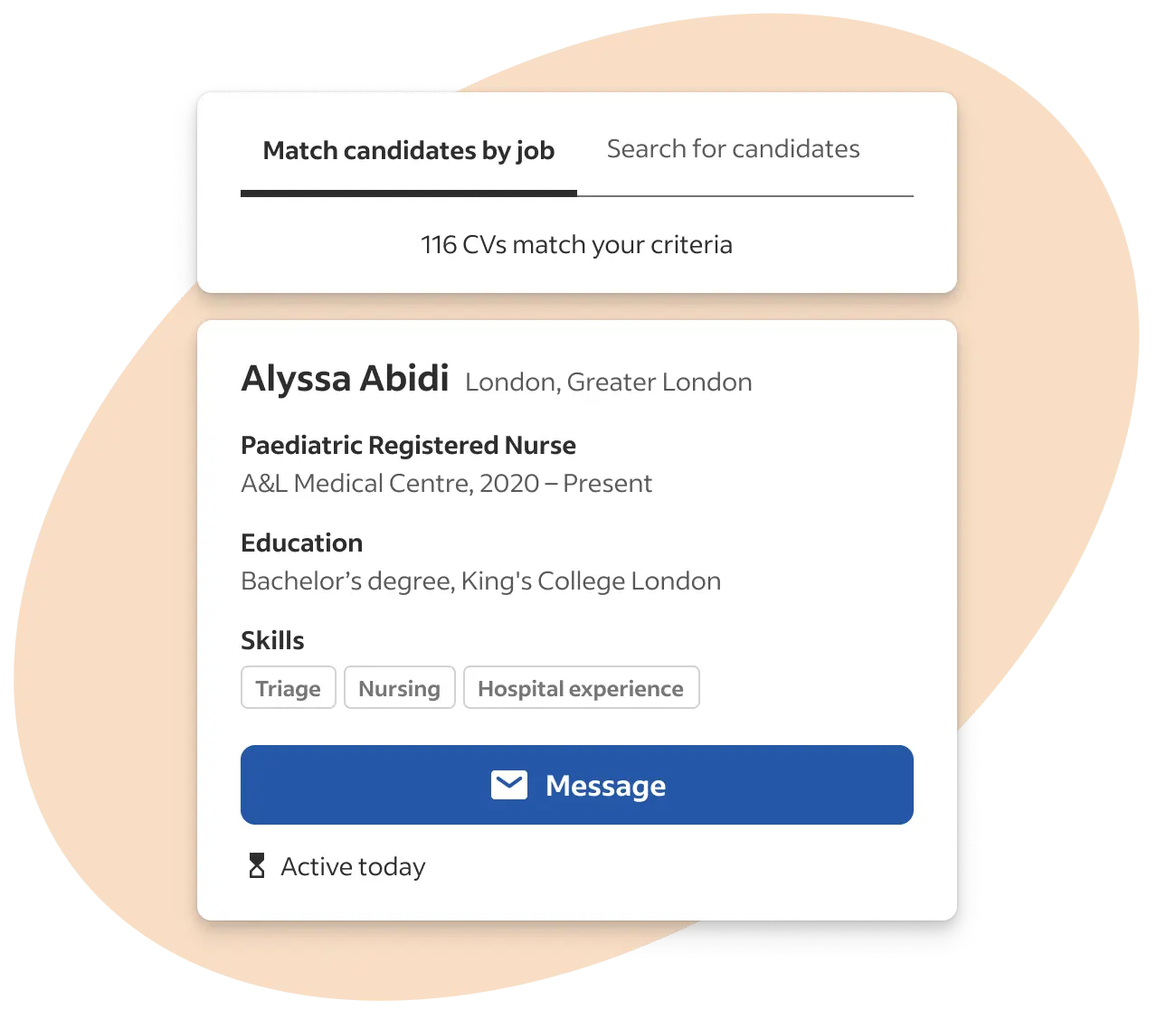Indeed for employers
Let’s hire your next great candidate. Fast.
No matter the skills, experience or qualifications you’re looking for, you’ll find the right people here.


Manage your hiring from start to finish
Post a job
Get started with a job post. Indeed has 30.4M total visits per month.
Find quality applicants
Customise your post with screening tools to help narrow down potential candidates.
Make connections
Track, message, invite and interview directly on Indeed with no extra apps to download.
Hire confidently
You’re not alone on your hiring journey. We have helpful resources for every step of the hiring process.
Your dashboard features
Mark the applicants you’re interested in, and we’ll automatically decline the rest for you.
Schedule and conduct virtual interviews directly from our platform. No downloads required.

Unlock matched candidates with Indeed Smart Sourcing
When you have a job posted and add an Indeed Smart Sourcing subscription, you immediately start seeing candidates whose CVs on Indeed fit your job description. When someone stands out, invite them to apply.
Matched candidates you invite to apply are 24.8X more likely to apply to your job than jobseekers who only see it in search results.

Hiring resources for every step of the process
47% of our hires from this year alone have come solely off the Indeed platform. In short, we simply would not have filled a fraction of the roles we have done over the last two years without Indeed and are thrilled with the candidates it has given us!”
